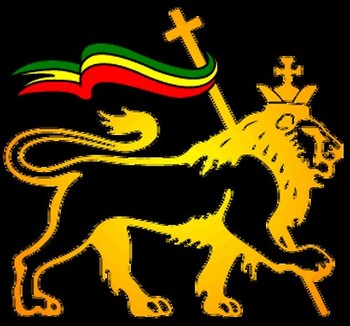
The Sunday Mail

Ibo Foroma
KWANZAA is a beautiful celebration that every African must take part in. By saying African; race, colour and creed have been set aside.
For seven days, beginning December 26 to January 1 on the Gregorian calendar, seven principles of life are commemorated and dedicated to each day.
December 26: The core principle of Umoja (oo-MOE-jah) which is unity; to strive for and maintain unity in the family, community, nation and race.
December 27: The principle Kujichagulia (koo-jee-cha-goo-LEE-ah) or self-determination; to define ourselves, name ourselves, create for ourselves and speak for ourselves.
December 28: Reserved for Ujima (oo-JEE-mah) or collective work and responsibility; to build and maintain our community together. And also to make our brothers’ and sisters’ problems, our problems and to solve them together.
December 29: Dedicated to Ujamaa (oo-JAH-mah) which means co-operative economics; to build and maintain our own stores, shops and other businesses and to profit from them.
December 30: Nia (nee-AH) which is purpose; to make as our collective vocation the building and developing of our community in order to restore our people to their traditional greatness.
December 31: Carries the principle of Kuumba (koo-OOM-bah) or Creativity; to do always as much as we can, in the way that we can, in order to leave our community more beautiful than when we inherited it.
January 1: Imani (ee-MAH-nee), or the Day of Meditation, which means faith; to believe with all our hearts in our parents, our teachers, our leaders, our people and the righteousness and victory of our struggle.
These holy seven principles are collectively known as Nguzo Saba and must all be practiced everyday throughout the year.
The Kwanzaa, or First Fruits Festival, is a marker to solidify and strengthen that which we must do on a daily basis.
Although Kwanzaa was first commemorated by the African-American community in 1966-1967 through the pioneering and endearing spirit of Dr Maulana Karenga, it had always been practiced throughout Africa under different names.
Our forefathers and mothers celebrated this cornerstone in different ways. For instance, our very own Mukwerera.
The name Kwanzaa derives from the Swahili “matunda ya kwanza”, meaning first fruits of the harvest.
The Kwanzaa we speak of today is a celebration that has its roots in the Black Empowerment movement of the 1960s, and was established as a means to help African-Americans reconnect with their African cultural and historical heritage by uniting in meditation and study of African traditions.
Nguzo Saba, the seven principles of African Heritage, are what Karenga described as “a communitarian African philosophy”.
In the early years of Kwanzaa, Karenga said it was meant to be an “oppositional alternative” to Christmas. The Rastafarian community firmly embraces this.
For the purposes of unity, and as Kwanzaa gained mainstream adherents in the West, Karenga altered his position so that practicing Christians would not be alienated.
During Kwanzaa 1997, Karenga revised his stance and declared: “Kwanzaa was not created to give people an alternative to their own religion or religious holiday.”
Many African-Americans who celebrate Kwanzaa do so in addition to observing Christmas. Kwanzaa is not a religious celebration confined to a religion.
Every soul on Earth is invited to experience a love and spiritual Afro-centric communication with the universe our ancient African ancestors discovered and we proudly inherit.
Africa is the motherland, the cradle of civilisation; who else is fit to direct, dictate pace and lead the world. Currently the world is under siege from ever escalating war; crime and violence, sexual and social immorality, here is the opportunity for everyone to trace back the root of the problem and solve it from there.
Our understanding is that Western influence is taking too much of a toll.
Ideas such as homosexuality, pornography, prostitution and bestiality are legal in some territories, and a general state of Godlessness happens to trademark the West, and so the global village is drunk from this “wine of God’s wrath”.
Via skyrocketing psychoactive drug abuse of both legal – chiefly alcohol and nicotine – and illegal substances, the world is suffering from serious, widespread moral decay.
Such is proof and testimony that God is no longer in the hearts of many and we are just beginning to suffer the consequences.
Not so long ago, many of us used not to know that members of the same sex can engage in any form of sexual activity.
Our African ancestors taught us much better ways of living. We give too much and sometimes unnecessary attention to scientists who before anything else proclaim that God does not exist.
Kwanzaa provides the long awaited opportunity to mend the bend before it is broken. Emperor Haile Selassie I says: “The temple of the Most High begins with the human body which houses our life, the essence of our existence. Africans are in bondage today because they approach spirituality through religion provided by foreign invaders and conquerors.
“We must stop confusing religion and spirituality. Religion is a set of rules, regulations and rituals created by humans, which were supposed to help people grow spiritually. Due to human imperfection religion has become corrupt, political, and a divisive tool of power struggle.
“Spirituality is not theology or ideology, it is simply a way of life, pure and original as was given by the Most High, the Universe and each other. As essence to our existence, it embodies our culture, true identification, nationhood and destiny”.



